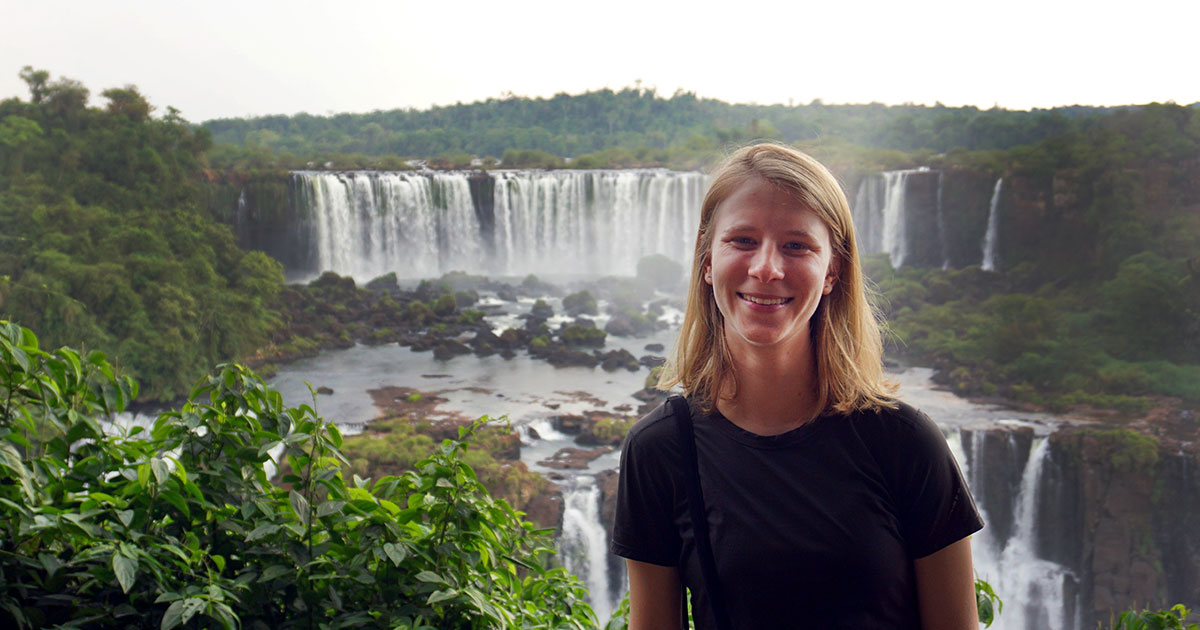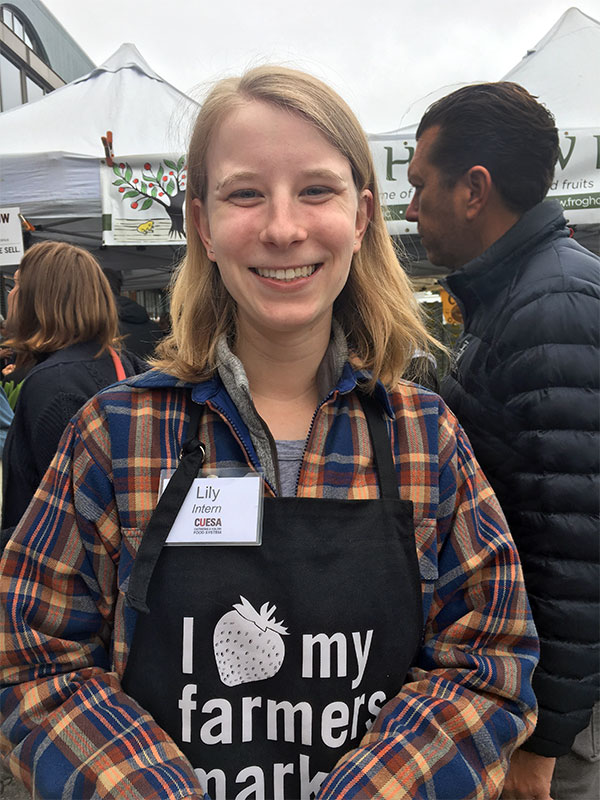New Fellow Lily Gross on Bee-ing the Change
- by Lily Gross

Lily Gross at Iguazu Falls in Argentina, during study abroad in college.
A Michigan native, I grew up spending most of the summer catching frogs and picking wild black raspberries at my grandparents’ cottage. Looking back, that portion of my childhood existed in a curious utopia. I never feared that my environment or the food I ate could make me sick. The worst danger in my young mind was getting a splinter from running too fast on the dock. I was blissfully ignorant of what troubled the world around me.
As I grew up, I became increasingly aware of the social and environmental issues in our world and in particular, our food system. I began to read everything I could get my hands on about it, eager to find solutions. Senior year of high school, I started a club that intended to inform students about eating well and supporting local organizations that try to improve accessibility to food. After graduation, unsure of the path to take in college, I took a gap year in which I spent three months in Bolivia and Peru. While there, I learned about the impact that increased demand for quinoa in the U.S. has had on southern economies. This high demand for quinoa drove up prices and shifted South American diets toward more affordable staples such as rice and wheat.
After this eye-opening experience abroad, I started at Denison University in Granville, OH, determined to learn as much as I could about food systems while creating change at the university level. This passion took hold in my major, environmental studies, and collaborative efforts with the Bon Appétit team at Denison.
The summer after my freshman year I conducted research on colony collapse disorder, or bee loss, and the resulting impacts on Ohio agriculture. My research culminated with the creation of a website (TheBuzzonBees.org). I quickly earned a nickname that would follow me for the rest of college: “The Bee Girl.”

Lily Gross interning at CUESA’s Ferry Plaza farmers’ market
As college progressed, when asked about post-grad plans, I began to respond: “I want to go into the private sector, work in food and beverage, and fix the food system.” Yet I felt unsure of how to direct this passion productively into a career that could create positive change in the food industry. I found this path the summer after my junior year in San Francisco while working for two incredible organizations: CUESA and KitchenTown. CUESA (the Center for Urban Education about Sustainable Agriculture) is a non-profit that connects farmers to consumers and major restaurants in the Bay Area while operating three farmers’ markets. It is a perfect example of the potential for change when an organization and community band together to support local agriculture and work toward cultivating a healthy food system.
KitchenTown, meanwhile, is an innovative incubator for food startups that offers a safety net for entrepreneurs with amazing ideas while providing them with the resources and know-how to propel their startups forward. Each offers unique approaches to creating positive change by simultaneously educating consumers and supporting more sustainable products.
Senior year, I had the opportunity to chair the dining committee at Denison and work hand in hand with the Bon Appétit team. I also worked part-time for Bon Appétit through the Street Team, a position intended to help bridge the gap between Denison Dining and students by creating an avenue for honest feedback. Through both of these organizations, we successfully implemented a Greenie reusable container pilot program to offer a sustainable alternative to single-use clamshells.
The Fellowship feels like a natural extension of my internships and work in college, sharing Bon Appétit’s mission and acting as a bridge to engage students. I am excited to educate the next generation of consumers and empower them to make decisions that are good for themselves and the planet. I am so honored to join Bon Appétit in driving change in our food system.